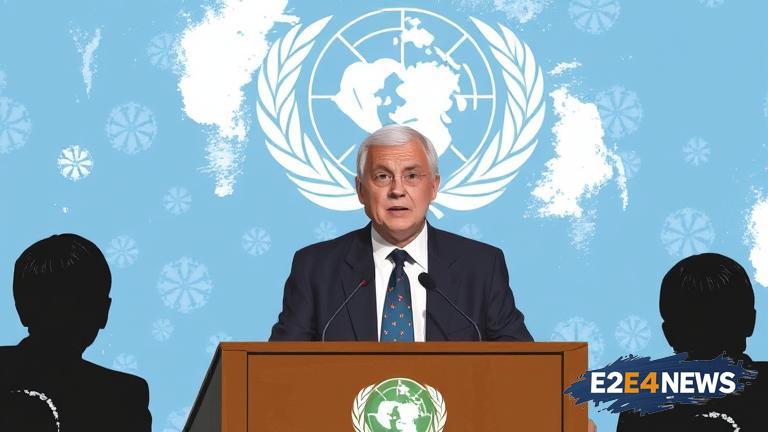Ted Chaiban, the Deputy Executive Director of UNICEF, has recently returned from a trip where he witnessed firsthand the devastating impact of poverty, conflict, and climate change on children worldwide. Chaiban’s remarks highlighted the urgent need for collective action to address the growing child crisis. He emphasized that millions of children are being left behind, deprived of their basic rights to education, healthcare, and protection. The COVID-19 pandemic has further exacerbated the situation, with many countries struggling to provide essential services to their most vulnerable populations. Chaiban noted that the consequences of inaction will be severe, with long-term effects on the health, well-being, and future prospects of an entire generation. He called on governments, international organizations, and civil society to work together to prioritize the needs of children and ensure that they receive the support and resources they need to thrive. Chaiban’s trip took him to several countries, where he met with local communities, governments, and partners to assess the situation and identify areas for improvement. He witnessed the resilience and determination of children and families, but also saw the stark realities of poverty, inequality, and social injustice. The Deputy Executive Director emphasized that UNICEF is committed to doing everything in its power to support children and families affected by crisis and conflict. He highlighted the importance of investing in education, healthcare, and social protection programs, as well as promoting policies and practices that prioritize the rights and well-being of children. Chaiban also stressed the need for greater accountability and transparency in the use of resources and funds allocated to support children’s programs. He acknowledged that there are many challenges ahead, but expressed optimism that together, it is possible to make a meaningful difference in the lives of children and create a brighter future for all. The UNICEF Deputy Executive Director’s remarks come at a critical time, as the world grapples with the complexities of a rapidly changing global landscape. As the international community continues to navigate the challenges of poverty, inequality, and social injustice, it is clear that the needs of children must be at the forefront of the agenda. Chaiban’s call to action is a reminder that the fate of future generations depends on the decisions and actions taken today. The time to act is now, and it requires a collective effort to ensure that every child has access to the opportunities and resources they need to reach their full potential. The consequences of inaction will be severe, and it is the responsibility of all stakeholders to work together to address the growing child crisis. By prioritizing the needs of children and investing in their future, we can create a more just, equitable, and prosperous world for all. Chaiban’s remarks serve as a powerful reminder of the importance of putting children at the heart of the global agenda and working tirelessly to ensure that their rights and needs are respected and protected. As the world continues to evolve and face new challenges, it is essential that the international community remains committed to the principles of justice, equality, and human rights, and that the needs of children are always at the forefront of the agenda. The UNICEF Deputy Executive Director’s trip and subsequent remarks have shed light on the critical issues affecting children worldwide, and it is now up to the international community to take action and make a meaningful difference in the lives of millions of children around the world. By working together, we can create a brighter future for all children, where they have access to quality education, healthcare, and protection, and can reach their full potential. The time to act is now, and it requires a collective effort to address the growing child crisis and ensure that every child has the opportunity to thrive.
